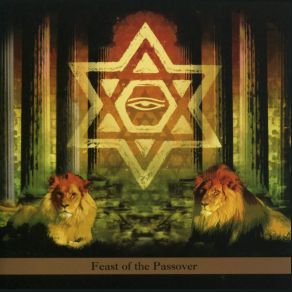Feast of the Passover
Download links and information about Feast of the Passover by David Gould. This album was released in 2009 and it belongs to Reggae, World Music genres. It contains 12 tracks with total duration of 46:52 minutes.

|
|
|---|---|
| Artist: | David Gould |
| Release date: | 2009 |
| Genre: | Reggae, World Music |
| Tracks: | 12 |
| Duration: | 46:52 |
| Buy it NOW at: | |
| Buy on iTunes $9.99 | |
| Buy on iTunes $9.99 | |
Tracks
[Edit]| No. | Title | Length |
|---|---|---|
| 1. | Divine Order | 5:57 |
| 2. | Bread of Affliction | 3:22 |
| 3. | Four Questions | 3:25 |
| 4. | Ten Plagues | 4:55 |
| 5. | Hallelujah | 3:18 |
| 6. | Jah Is Mighty | 3:37 |
| 7. | Who Knows One? | 4:06 |
| 8. | Goats Milk | 3:11 |
| 9. | May the Prophet Arise | 4:22 |
| 10. | Once We Were Slaves | 2:34 |
| 11. | Peace | 3:42 |
| 12. | Next Year In Jerusalem | 4:23 |
Details
[Edit]In the 1990s, David Gould quietly became one of the most valuable players in American reggae while holding down the bass chair for the mighty John Brown's Body. Since then he has been doing something a bit more interesting: adapting traditional Jewish songs and melodies and putting them in reggae and dub settings. Feast of the Passover is a return to the pattern he established ten years earlier with Adonai & I, but with a difference: here he focuses specifically on songs traditionally connected with the Passover seder. Like the album title itself (a sly reference to a classic Congos recording produced at the Black Ark), Gould's sound harks back to the golden age of reggae — or, more accurately, to more than one. "Bread of Affliction" is a horns-heavy ska tune taken at a medium trot, while "Who Knows One" is another ska number taken at a brisker tempo, this one featuring jazzy solos. "Four Questions" is a chugging rockers setting of a modal Hebrew melody. On the lovely and really quite deeply moving "Jah Is Mighty," guest vocals are provided by Leonard "Sparrow" Dillon of the legendary roots reggae group the Ethiopians; here the groove is a swinging one drop and the atmosphere is soft and richly dubwise. "Peace" will be recognized by many listeners as a reggae arrangement of "Shalom Aleichem," here sung with a nice blend of joy and introspection and leavened by a variety of dubwise flourishes. "Next Year in Jerusalem" ends the program with a sprightly calypso groove. This has turned out to be a rich musical and cultural vein for Gould — here's hoping it won't take him another ten years to produce the next installment.